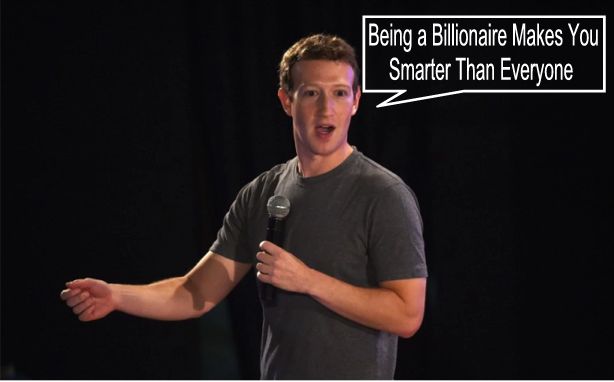The fate of Zuckerberg’s “gift” to Newark schools

Five years ago, Facebook billionaire Mark Zuckerberg decided to promote “school reform” by making an unprecedented $100 million gift to the single school system of Newark, New Jersey. A real media event, the announcement was made on a wildly popular national television program, “The Oprah Winfrey Show.” It was also timed as a one-two punch to coincide with the release of the documentary film Waiting for Superman, funded by school privatization advocates, which provided an idyllic portrait of charter schools.
The Zuckerberg gift was hailed, not just as a boon to the impoverished city, but as a turning point for public education in America. His philanthropic experiment aimed—with more than a touch of hubris—to show “how to flip a city and take it from very, very poor schools and poor performance of children to…a model of educational excellence,” in the words of Newark Democratic Mayor Cory Booker, a longtime advocate for dismantling public education and a major co-leader of the city initiative, together with New Jersey Republican Governor Chris Christie.
The recently released book “The Prize: Who’s in Charge of America’s Schools?” tells the story of the bequest and its failure to deliver on its promises. Dale Russakoff, a former Washington Post writer, has received much critical acclaim for her exposure of the mechanics of philanthropic school reform, the roles of Booker and Christie and following the lucrative money trail.
But it must be said that on the fundamental issue of the political and economic nature of the “school reform” movement, Russakoff waffles if not capitulates. Despite her critical approach, she is inconsistent, embracing “good” charters, agreeing with some attacks on teachers’ rights, and in general having no answer to the problem of getting more resources to schools and students. Nonetheless, despite its limitations, the book’s detailed account of the events of the past five years in Newark reveals much about the bipartisan attack on public education.
The book’s importance is in its depiction of the ill-fated nature of this political project—the legacy of the “prize” is the fact that one-third of the city’s children now attend charter schools, thousands of students were forced to transfer from their home schools, 1,000 teachers and more than 800 support staff were eliminated, neighborhood schools were destroyed and a system of “school choice” was imposed that determined children’s schools with algorithms. These attacks sparked “venomous” public outrage.
Booker’s goal—that Newark should become “the charter school capital of the nation”—has not been achieved. That statistical place belongs to New Orleans, with 91 percent in charter schools, followed by Detroit at 55 percent. Newark, with 30 percen charters, now joins many other US cities with a hybrid school system: District of Columbia, Flint, MI, Cleveland, OH, Gary, IN, Kansas City, MO, Philadelphia, PA and so on. It is noteworthy, however, that the Newark initiative made huge inroads and played a big role in the ongoing national drive for privatization of education.
As the WSWS predicted at the time, Zuckerberg’s “money will have no measurable impact on America’s crumbling infrastructure.” We cautioned, “The latter requires the application of a massive, coordinated social effort, involving the expenditure of trillions of dollars, which will be possible only as the result of radical wealth redistribution and changes in social policy.”
On this point, Russakoff’s book eloquently demonstrates the relationship The fate of Zuckerberg’s “gift” to Newark schools - World Socialist Web Site:
